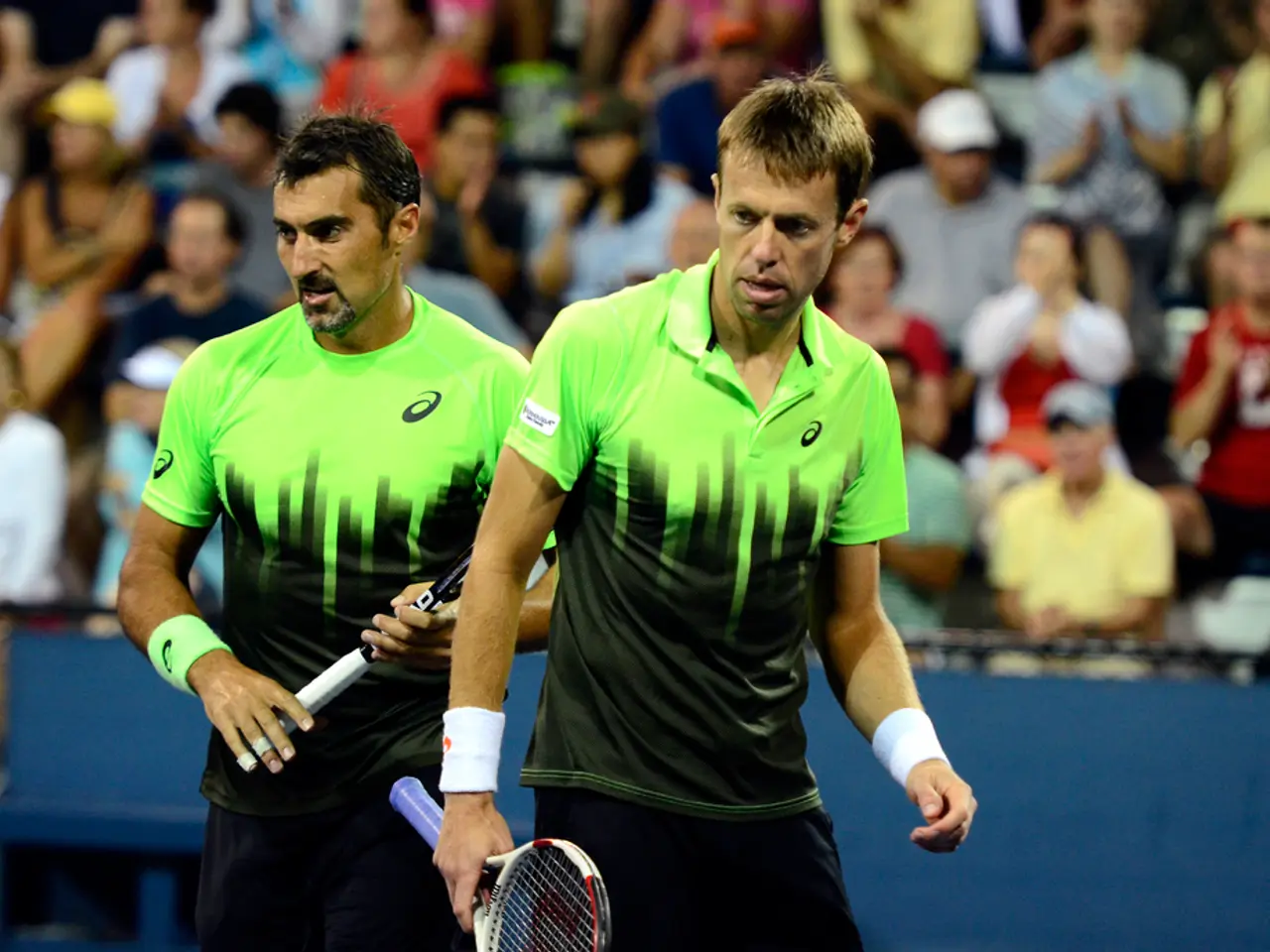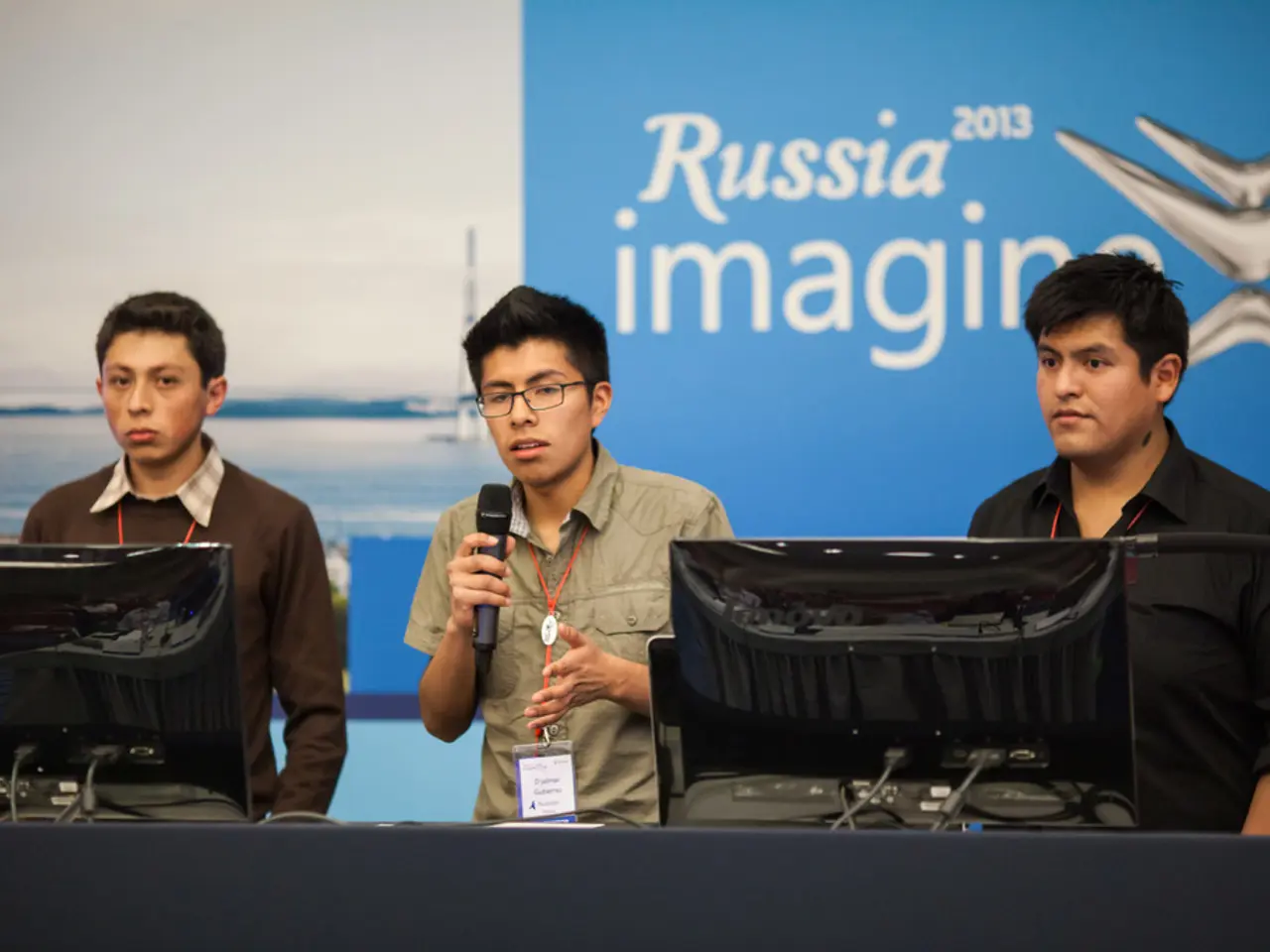International Alliance of BRICS Countries displays accord to challenge U.S. President Trump's Tariff Threats; Consents to...
India's trade relations with the BRICS nations (Brazil, Russia, China, and South Africa) have taken a hit due to the tariffs imposed by U.S. President Donald Trump. The escalating trade tensions have seen Trump doubling tariffs on Indian goods to 50%, citing India's continued imports of Russian oil[1][2]. Similar steep tariff increases have affected Brazil, another BRICS member, while Russia has managed to avoid such tariffs despite the ongoing conflict in Ukraine.
The United States has threatened to impose additional 10% tariffs on BRICS nations, aiming to penalize their collective stance against U.S. interests and their efforts to reduce dependence on the U.S. dollar via alternative financial systems[1][5]. India and Brazil, two democratic BRICS members, now face some of the highest U.S. tariffs among these emerging economies, with South Africa also affected by secondary tariff increases[2].
In response, BRICS countries have pushed for collective diplomatic and economic action. Brazil’s President Lula, currently BRICS chair, is actively advocating for unified BRICS discussions involving Indian Prime Minister Modi and China’s Xi Jinping to plan coordinated responses to the tariffs[1][3]. India has reinforced its diplomatic ties within BRICS, particularly with Russia and China, despite past border tensions, aiming to strengthen cooperation in trade and defense as a counterbalance to U.S. pressure[3].
These tariffs have strained the historically improving US-India relations, disrupting trade negotiations and increasing mistrust, especially due to the U.S. criticism of India’s foreign policy decisions and the tariff distinctions applied compared to China[4]. This environment complicates bilateral trade and investment prospects, while also pushing India closer to BRICS economies and the global South as alternate partners[4][3].
Meanwhile, India's National Security Advisor (NSA) Ajit Doval met with Russian President Vladimir Putin on Thursday. The talks were described as "constructive" by the Kremlin, underscoring the continuity of dialogue between the two countries despite shifting global alignments[6]. Doval hailed the partnership between India and Russia, stating, "We have now established very good relations, which we value very much - a strategic partnership between our countries."
Prime Minister Narendra Modi and President of Brazil Luiz Inácio Lula da Silva also had a telephone conversation on Thursday. The leaders exchanged views on various regional and global issues of mutual interest, but the article does not provide new information about the commitments made to take the India-Brazil Strategic Partnership to new heights[7].
China has expressed support for India's sovereignty and non-negotiability in foreign policy choices, with a Chinese spokesperson stating, "India's sovereignty is non-negotiable and its foreign policy choices cannot be manipulated by other countries, no matter how significant their own ties with India are."
In a significant development, Prime Minister Modi will visit China on August 31 for the Shanghai Cooperation Organisation summit, marking his first visit in seven years[5]. The visit signifies a desire to revive the relationship between India and China amid unstable U.S. policies.
The BRICS nations have united and sent a clear message that they will continue to trade and cooperate on their own terms, despite any intimidation. The leaders of the BRICS countries have agreed to further strengthen their ties and mutual cooperation in the face of these challenges.
[1] https://www.reuters.com/world/us/us-tariffs-strain-us-india-relations-push-india-closer-brics-economies-2021-07-01/ [2] https://www.bloombergquint.com/global-economics/brics-braces-for-u-s-tariff-escalation-as-india-brazil-face-highest-taxes [3] https://www.thehindu.com/news/national/india-to-strengthen-ties-with-russia-china-to-counter-us-pressure/article35369513.ece [4] https://www.livemint.com/news/india/us-tariffs-strain-us-india-relations-disrupt-trade-negotiations-11626120847243.html [5] https://www.ndtv.com/india-news/pm-narendra-modi-to-visit-china-on-august-31-for-shanghai-cooperation-organisation-summit-3182926 [6] https://www.ndtv.com/india-news/ajit-doval-meets-russian-president-vladimir-putin-discusses-various-issues-2616235 [7] https://www.ndtv.com/india-news/narendra-modi-luiz-inacio-lula-da-silva-discuss-issues-of-mutual-interest-on-phone-2616248
- Despite the escalating trade tensions with the U.S., India is aligning itself more with the BRICS nations, particularly Russia and China, in response to increased tariffs, with a focus on strengthening cooperation in trade and defense as a counterbalance to American pressure.
- The BRICS leaders have agreed to further strengthen their ties and mutual cooperation, sending a clear message that they will continue to trade and cooperate on their own terms, despite any intimidation from the U.S.
- The ongoing tariffs imposed by the U.S. on India and other BRICS nations have strained relations between these countries, altering trade negotiations and pushing India closer to BRICS economies and the global South as alternative partners.








